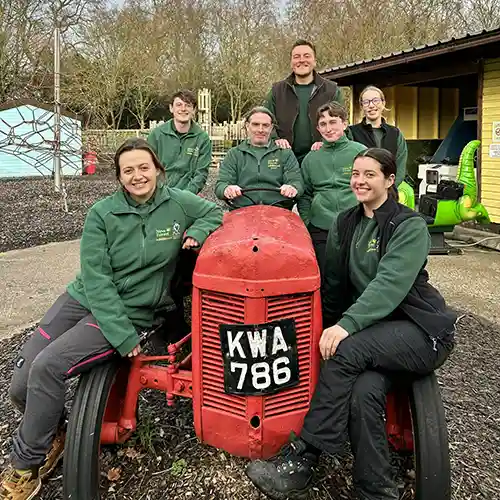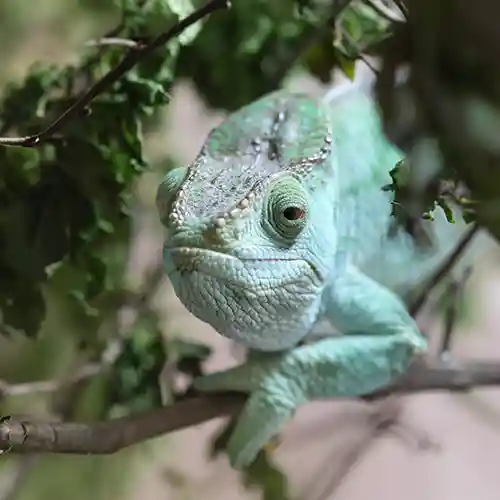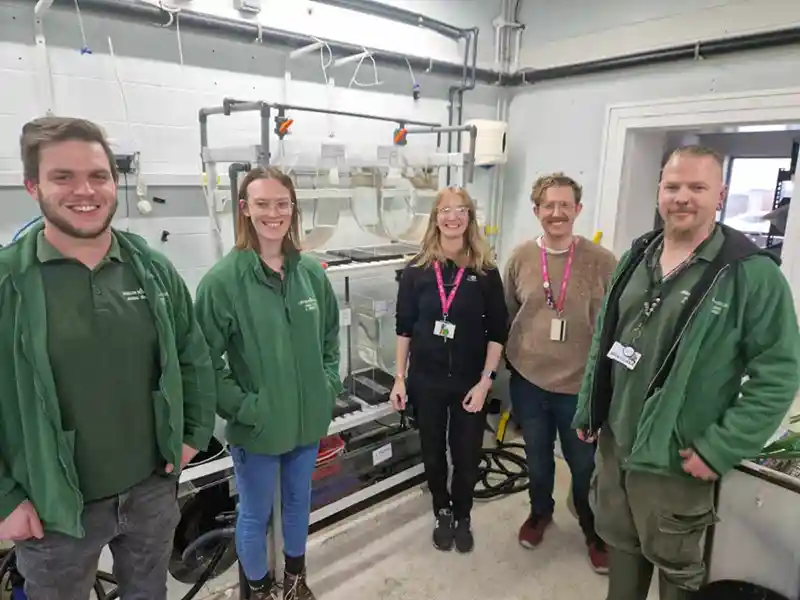How To Become A Zoo Keeper?
페이지 정보

본문
"The success of a nation and its ethical progress can be judged by the way its animals are treated." - Mahatma Gandhi
Do you enjoy animals and imagine working in a zoo? Zoo keepers are key in securing wildlife and taking care of animals. At locations like the Zoological Society of London (ZSL), over 20,000 animals get the care they need from experts.
To become a zoo keeper, you need hard work, education, and a love for animals. This task is amazing, letting you work with lots of species and help with crucial conservation work. If you're into wildlife or animal welfare, zookeeping might be ideal for you.
Beginning your zoo keeper career means discovering what's required. This guide will cover education, experience, and more. It's all you need to understand to begin a fulfilling zookeeping profession.
Comprehending the Role of a Zookeeper
Exploring what a zookeeper does exposes a role filled with challenges and rewards. They focus on animal welfare and conservation. Zookeepers work hard to keep animals healthy and pleased in their care.
Daily Responsibilities and Tasks
A zookeeper's day is filled with important jobs:
- Preparing meals that meet each animal's nutritional needs
- Cleaning enclosures to keep them tidy and safe
- Watching over animal health and behaviour
- Offering medications and treatments as required
- Developing activities to keep animals mentally sharp
Working Environment and Conditions
Zookeepers work outside in all sort of weather condition. They manage both indoor and outside spaces. The task needs being healthy and zookeeper able to handle the needs of taking care of animals.
"Being a zookeeper is more than a job - it's an enthusiastic dedication to animal care and preservation."
Types of Animals and Specialisations
Zookeepers can specialise in many animal groups:
- Primates
- Big cats
- Marine mammals
- Reptiles
- Birds
Your role might include dealing with 2-5 various animal types. This needs a lot of knowledge and the ability to adapt.
Essential Skills and Personal Qualities for Zoo Keeping
To be a top zookeeper, you require more than simply a love for animals. Your job will be tough and require you to handle animals and individuals well. You'll also need to understand animal behaviour.

What zoos look for in people consists of:
- Exceptional patience and emotional resilience
- Strong physical conditioning and stamina
- Eager observation abilities
- Ability to stay calm under pressure
- High level of compassion towards animals
Getting hands-on experience is crucial to mastering this role. You'll need to reveal:
- Advanced understanding of animal care methods
- Proficiency in animal handling and security procedures
- Effective interaction with both animals and human visitors
"A fantastic zookeeper connects science, compassion, and preservation in every interaction with animals."
You should know about animal nutrition, behaviour, and fundamental veterinarian care. A lot of zookeepers learn through training, volunteering, and ongoing knowing.
Zookeeper work is not just a task. It's a big commitment to teaching about wildlife and helping preservation. Your passion and hard work will make you stand apart in this satisfying profession.
How to Become a Zoo Keeper
Beginning a career as a zookeeper requires careful preparation and education. You must first comprehend the educational requirements and training paths. These will turn your love for animals into a task.
Educational Requirements
To be a fantastic zookeeper, you need a strong academic base. The majority of tasks try to find specific certifications:
- At least 5 GCSEs at grade 4 or zookeeper above, consisting of English, maths, and science
- A levels or college credentials
- A college degree in biology or animal science
- Level 3 Diploma in Animal Management
Required Certifications
Getting special accreditations can really help you in your zookeeper career. Crucial ones include:
- Diploma in Management of Zoo and Aquarium Animals (DMZAA)
- Zookeeping Level 3 Diploma (RQF)
- Animal dealing with certificates
- Emergency treatment certifications
Training Programs and Apprenticeships
Getting hands-on experience is key in zookeeper training. Many places use terrific opportunities:
- Unpaid apprenticeships at wildlife parks
- Internship programs at well-known zoos
- Practical training at places like Colchester Zoo and Dartmoor Zoo
- Volunteering to get real-world skills
Pro suggestion: Create a detailed portfolio to show your animal care skills. It will assist you in task applications.
Structure Relevant Experience in Animal Care
Getting hands-on experience is crucial for those wanting to be zookeepers. The task is extremely competitive. So, it's crucial to begin developing a strong base in animal care.
Your journey begins with discovering ways to work directly with animals. This is a strategic step.
"Experience is the best instructor in animal care" - Wildlife Conservation Experts
Here are effective methods to acquire experience dealing with animals:
- Volunteer at local animal shelters to develop basic animal managing abilities
- Look for internships at wildlife rehab centres
- Check out part-time positions at veterinary clinics
- Contact your local zoo for possible volunteer chances
Volunteering is an excellent method to learn more about animal behaviour and care. Many zoos and animal shelters are looking for people who want to learn. These places provide great chances to get hands-on experience and show your dedication to animal welfare.
Here are some ideas to take advantage of your experience:
- Keep a record of your abilities and interactions
- Get in touch with specialists in animal care
- Request referrals and recommendation letters
- Stay consistent and reveal your real enthusiasm
Remember, useful experience makes you stick out in the zookeeping world. Each time you work with animals, you discover more. This increases your opportunities of getting a job in animal care.
Career Pathways and Professional Development
Starting a profession as a zookeeper is exciting. It provides lots of possibilities to grow and specialise. Your journey starts with understanding the different paths in this field.
Entry-Level Positions
Entry-level jobs in zookeeping are an excellent start. They give you hands-on experience. Zoos try to find candidates with:
- Level 2 Diploma in Animal Care (minimum credentials)
- GCSEs in and a clinical subject
- Volunteer experience at animal shelters or farms
Profession Progression Opportunities
As you get experience, your profession can grow. You can move up to:

- Junior Keeper
- Senior Keeper
- Team Leader
- Professional Roles
"Continuous learning and practical experience are essential to advancing in your zookeeping profession."
Specialised Roles
You can also select special locations like:
- Conservation reproducing programmes
- Animal training
- Wildlife research study
- Educational outreach
About 25% of zookeepers get advanced degrees in zoology or animal preservation. Getting Level 4 qualifications can enhance your opportunities for senior roles and research study.
Working Hours and Physical Demands
Ending up being a zookeeper indicates you'll work more than simply regular hours. You'll deal with tough physical difficulties and need to be versatile, including weekends and holidays. Zoos are open every day, so you'll often work when others unwind.
"Zoo keeping is not a common 9-to-5 task-- it's a lifestyle of dedicated animal care and commitment."
This job is physically demanding. You'll work outside in any weather, lifting heavy products over 50 pounds. Your tasks might include:

- Early morning feeding schedules
- Cleaning animal enclosures
- Preparing specialised diet plans
- Conducting medical examination
- Preserving intricate habitats
Shifts can start as early as 5 AM and go late into the night. You'll be on your feet the majority of the time, moving in between animal zones. Weekends and zookeeper holidays are part of the task, needing lots of stamina and dedication.
In spite of the obstacles, this job has great rewards. You'll grow strong, both physically and mentally. You'll likewise make fantastic connections with amazing animals.
Health and Safety Considerations
Being a zookeeper includes its own set of difficulties. It's essential to know how to keep both animals and personnel safe. This implies following stringent health and safety rules.
Zookeepers deal with a distinct environment where security is key. Research studies show that health and safety are now as crucial as the zoo's primary work.
Danger Management Strategies
There are a number of methods to manage risks in zoos:
- Daily checks of animal enclosures for dangers
- Counting animals at the start and end of shifts
- Enjoying how visitors act near animals
- Being ready for emergency situations
Animal Handling Safety Protocols
Understanding which animals are most dangerous is crucial. Big animals like rhinos can be very dangerous. There have been cases where zookeepers got seriously harmed.
Security isn't almost wearing gear - it's about knowing animal behaviour and staying alert.
Individual Protective Equipment
Zookeepers need to wear the best gear, consisting of:
- Special gloves for dealing with animals
- Strong shoes for grip and safety
- Clothes that safeguards versus bacteria
Getting immunized versus illness like hepatitis B and rabies is likewise key. It helps keep zookeepers healthy in their tough job.
Wage Expectations and Job Market
Thinking about a profession in zoo keeping? It's important to understand about wages and the task market. The field is growing, with more opportunities in the UK.
Let's look at what zoo keepers can earn at various stages:
- Entry-level zookeepers begin at about ₤ 14,000 a year
- Certified ones make in between ₤ 16,000 and ₤ 22,000
- Senior zookeepers can earn up to ₤ 30,000 or more
The job outlook for zoo keepers is great. The sector is anticipated to grow by 5% in the UK by 2029. This implies around 3,910 new jobs will be readily available.
"The Association of Zoos and Aquariums supports expert growth for zoo keepers," a report states.
Salaries differ based on numerous things:
- Experience level
- Specialisation
- Where you work
- The zoo's size and type
While the pay may not be high, the delight of working with animals is valuable. The typical income is around ₤ 17,000. But, overall earnings can be between ₤ 13,000 and ₤ 27,000 a year.
Conclusion
Beginning a career in animal care is an interesting journey. It requires dedication, enthusiasm, and a love for learning. With over 350 zoos and wildlife locations in the UK, there are numerous job chances. You'll get to work with incredible animals and help protect wildlife.
To be a zoo keeper, you need more than simply love for animals. You need to have a mutual understanding of biology, have the ability to communicate well, and constantly wish to learn more. You'll gain hands-on experience, discover animal welfare, zookeeper and establish a deep respect for nature. About 3,000 people in the UK have found fulfilling professions in this field.

Your success in zoo keeping originates from blending science with a love for animals. Whether you're interested in mammals, birds, or marine life, this task lets you assist with preservation. Every day will bring new challenges and discovering opportunities that will improve your skills and knowledge.
If you like animals and want to assist secure wildlife, zoo keeping might be for you. Take on the challenge, stay curious, and turn your passion for animals into a satisfying career.

- 이전글붐붐티비 우회주소ヴ 연결 (HD_780)붐붐티비 우회주소ヴ #16k 붐붐티비 우회주소ヴ 무료 25.02.09
- 다음글붐붐티비사이트 우회주소ヴ 연결 (HD_780)붐붐티비사이트 우회주소ヴ #16k 붐붐티비사이트 우회주소ヴ 무료 25.02.09
댓글목록
등록된 댓글이 없습니다.




